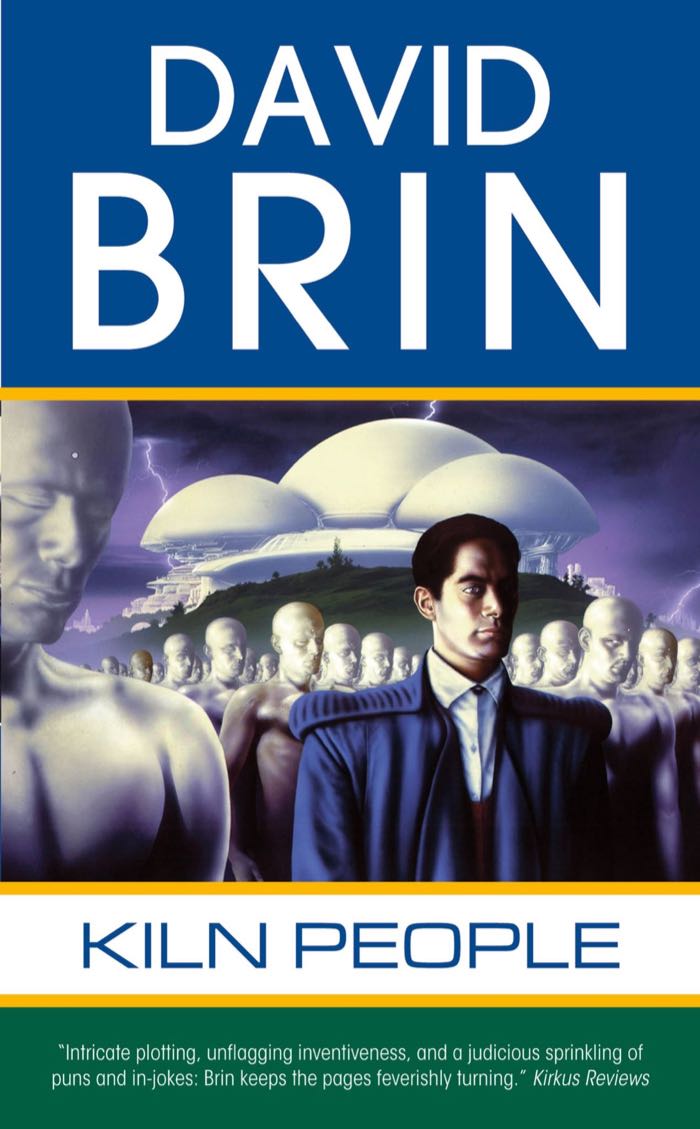Kiln People
Reviewed date: 2006 Mar 21
Rating: 4
568 pages
In Kiln People David Brin has put a new spin on the idea of clones as instant duplicates of a person. Advances in the physical sciences have allowed the creation of artificial muscles and flesh from clay. Breakthroughs in neurological sciences have made it possible to isolate a person's mind, which is a kind of Standing Wave in the structure of the universe. By copying a person's Standing Wave into a clay body, a person can duplicate himself. These duplicates, or dittos, last about 24 hours until the clay breaks down, and then their memories can be uploaded back into the real person. A company called Universal Kilns brings to market cheap, universal access to dittoing technology that allows people to effectively be everywhere and do everything at the same time. It revolutionizes the world.
Our window into this imagined future world is our hero, private investigator Albert Morris. His main line of work is tracking down copyright violators who make unlicensed clay dittos of people, usually for use in the burgeoning sex trade. A particularly harrowing encounter with a secretive crime mogul named Beta brings Albert Morris to the attention of Ritu Maharal, the daughter of a top scientist at Universal Kilns. Ritu hires Morris to investigate the disappearance of her father, Yosil Maharal, who she fears has been kidnapped.
As Morris investigates the disappearance of Yosil Maharal, he discovers a vast, multilayered conspiracy that involves the top echelons of Universal Kilns, crime master Beta, a well-respected seller of sex dittos, various pro- and anti-ditto activist groups, and even Maharal himself. Brin has set up the perfect science fiction detective novel, a brilliant piece of noir fiction, intricate and multi-faceted in the way that only Brin can manage.
Kiln People came in second place for four major science fiction awards, behind a different book each time: Hugo, Locus, the Arthur C. Clarke, and the John W. Campbell Memorial Award. There is a reason Kiln People did not win. It is an exellent book but it is gravely flawed.
The first two-thirds of Kiln People is a detective story, reminiscent of Brin's excellent mystery novel Sundiver. But in the final third Brin suddenly drops the detective schtick and dives headfirst into a deus ex machina ending full of metaphysical mumbo-jumbo much like his novel Heaven's Reach. Not only does Brin flagrantly violate the prime contract of detective novels--giving the reader enough clues to figure things out--but he introduces an honest-to-goodness mad scientist! Who plans in secret to destroy the world for the sake of progress! The ending is bitterly disappointing.
Despite the dreadful ending, Kiln People remains an excellent book. Its flaws prevent it from being exceptional, but it is worth reading. I look forward to the forthcoming sequel, Kil'n Time.
